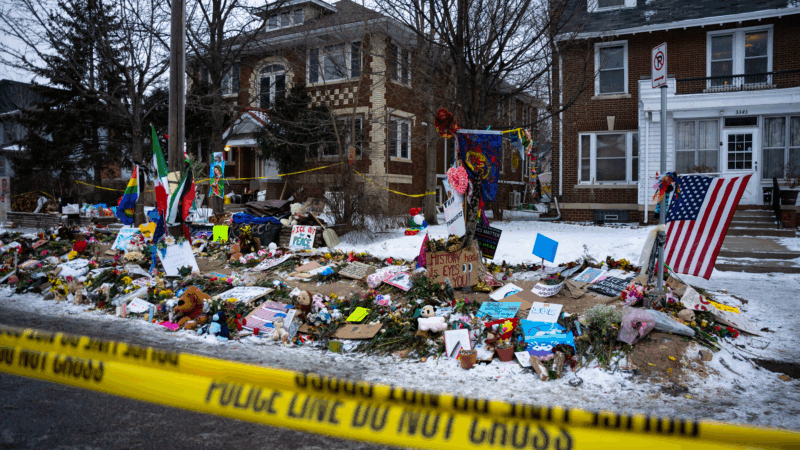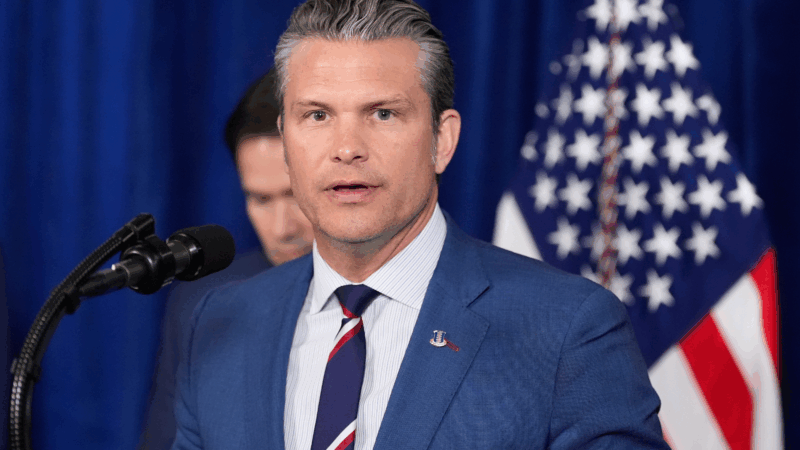“Just Mercy” Sheds Light on Lack of Change in AL Justice System
The film “Just Mercy” premieres Friday in Montgomery. It’s based on civil rights attorney Bryan Stevenson’s efforts to free Walter McMillian, who was wrongfully charged with murder in 1988 and sentenced to death row. A year later, Stevenson founded the Equal Justice Initiative, a Montgomery nonprofit that defends people who may have been wrongly convicted, often due to the color of their skin.
Anthony Ray Hinton credits the Equal Justice Initiative with saving his life.
“Had it not been for EJI, there’s no doubt in my mind I would have been executed by now,” he says.
In 1985, Hinton was convicted of murdering two fast food restaurant managers in Birmingham. Hinton told detectives he didn’t do it, but he says they didn’t care.
“He [the detective] said ‘but since y’all always taking up for one another, take this rap for one of your homeboys who truly did it,'” Hinton says. “And that cost me 30 years of my life.”
Thirty years. That was how long Hinton spent on death row before the state exonerated him in 2015. Decades later, wrongful convictions are still not unusual in Alabama. Kira Fonteneau is the former public defender for Jefferson County.
“Not much has changed,” she says. “The conditions that set people up to be wrongfully convicted still exist in the system today.”
Take race, for example. Fonteneau says people of color are being locked up for things they didn’t do.
“And we see that because there are a lot of things that go along in the criminal justice system that often will make it either easier for people to plea or for their version of the events not to get told in trials,” she says.
Fonteneau says often times people of color can’t afford an attorney or an expert witness ⏤ two things that are vital in many cases.
Carla Crowder is an attorney and executive director of Alabama Appleseed, an advocacy group that focuses on criminal justice issues. She says in Alabama, people of color are at a major disadvantage because of structural racism across the entire criminal justice system.
“You have vastly disproportionate numbers of white prosecutors and district attorneys,” Crowder says. “The appellate courts are entirely white and the Alabama Supreme Court.”
That’s why many civil rights attorneys believe Stevenson’s work, chronicled in his memoir, is so important. They say he’s leveling the playing field to make sure people have the legal representation they need to fight a system much larger than themselves.
China’s top general under investigation in latest military purge
Analysts believe these purges aim to reform the military and ensure loyalty to Chinese leader Xi Jinping. Another commission member, Liu Zhenli, is also under investigation.
This sprawling, surrealist movie is a tribute to cinema itself
Director Bi Gan, known for his films Kaili Blues and Long Day's Journey Into Night, sets his latest film in a world where people can live forever, unless they dream.
As the winter storm rages, here’s what to know in your state
Reporters across the NPR Network are covering the impact of the storm and how officials are responding. We've also got tips for staying safe once bad weather hits.
A deadly standoff in 1992 changed federal use-of-force rules. Here’s why it matters
An encounter with white separatists decades ago led to new deadly force policies for some federal law enforcement. Minneapolis is raising questions about whether it's again time to revisit the issue.
Tired of bad haircuts? 3 stylists share tips on how to get the do of your dreams
No more crying over bad haircuts. This illustrated guide has advice on how to find a great stylist and communicate what you want, even while you're sitting in the salon chair.
Trump administration’s defense strategy tells allies to handle their own security
The Pentagon released a priority-shifting National Defense Strategy late Friday that chastised U.S. allies to take control of their own security and reasserted the Trump administration's focus on dominance in the Western Hemisphere above a longtime goal of countering China.






